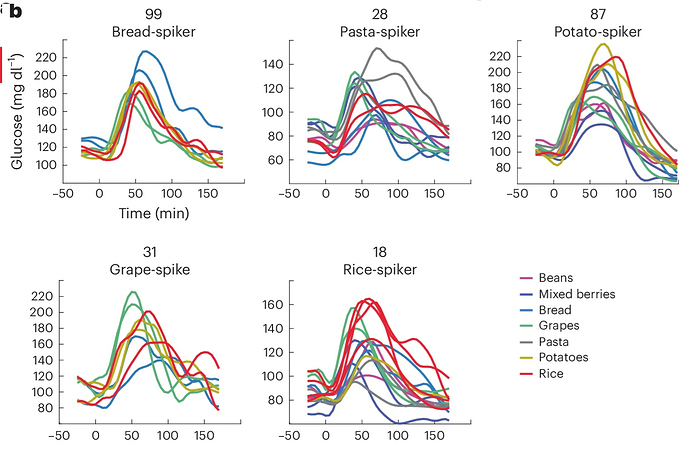Was listening to this podcast:
By Ben Bikman, on the metabolic mind podcast. (I tried to find a different link, but I had a hard time doing so; this is to my player).
In the discussion, Dr. Bikman cites to this study:
They compared the GLP-1 output for carb meals for obese and non-obese people, and found that the output is less for the obese. What this means in practice (according to Dr. Bikman) is that lean people eat a high carb meal and their hunger goes down, while obese people don’t get full and maybe even get hungry.
For high fat meals, there wasn’t a difference.
I’m basically convinced that things like this - low GLP-1 output - are causal for gaining weight and obesity. That is, people who gain weight, particularly eating carbs, do so because they don’t produce enough hormones (including GLP-1) or other “I’m full” signals in response to eating.
I wonder if this extends to low carb eating, too. For instance, if I eat a low carb meal, I get hungry, and this occurs even if I’m not hungry - at all - before the meal. I postulate that this is one reason some people get to lower weights while keto/low carb, while others don’t: the people who do get to lower weights don’t have a broken feedback system and instead their system is better at telling them they are full, whereas people like me, who don’t get to their lowest weight while an adult and continue to be heavy, have something broken in that system.

